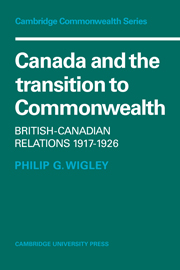1 results in Cambridge Commonwealth Series

Canada and the Transition to Commonwealth
- British-Canadian Relations 1917–1926
-
- Published online:
- 26 March 2010
- Print publication:
- 16 June 1977

